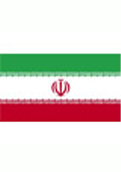‘Politicised Safeguards’: Iran–IAEA Contentions, Drivers and Policy Implications
This article examines Iranian contentions on three issue areas that exemplify the politicised nature of its interactions with the International Atomic Energy Agency (IAEA). These include access to military facilities, information credibility and the ‘nuclear activism’ of US-based non-governmental organisations (NGOs).
- S. Samuel C. Rajiv |
- September 2014 |















